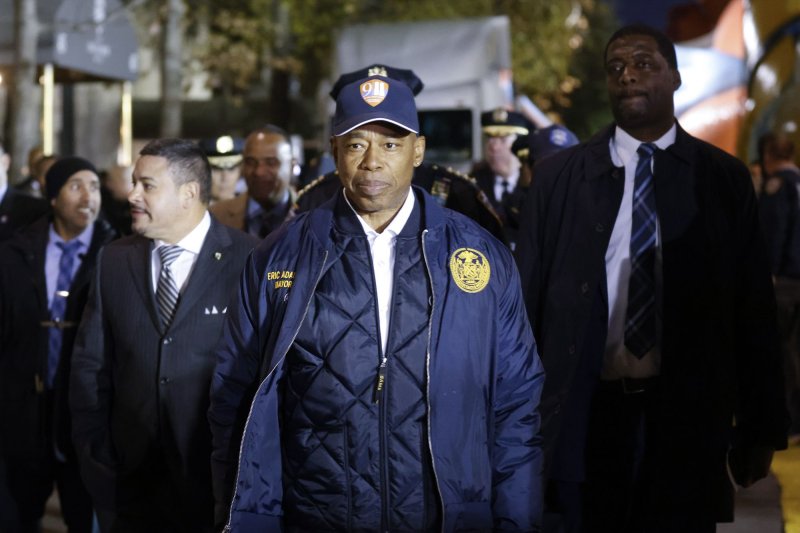New York City Mayor Eric Adams announced a new policy on Tuesday that will see municipal agencies given expanded training to involuntarily hold people with chronic and untreated mental illness. Photo by John Angelillo/UPI |
License Photo
Nov. 29 (UPI) -- New York City Mayor Eric Adams announced a new policy Tuesday to expand involuntary commitment of people with chronic and untreated mental illnesses, including expanded training on how to assist those in crisis.
Adams announced the directive at a news conference Tuesday. It clarifies that outreach workers, city-operated hospitals, and first responders "have the legal authority to provide care to New Yorkers when severe mental illness prevents them from meeting their own basic human needs to the extent that they are a danger to themselves."
Adams also released his 11-point legislative agenda for the upcoming legislative session in Albany. The agenda will lobby for expanding the list of authorities able to carry out an involuntary commitment assessment, and make "the law explicit that a person requires care when their mental illness prevents them from meeting their own basic needs."
The announcements are in response to a string of attacks in the city's subway system since Adams took office.
The death of Michelle Go, 40, in January committed by a man suffering from mental health issues. Go was waiting on a subway platform when she was shoved onto the train tracks and hit and killed by a train.
Homelessness tends to increase across the subway system during the cold winter months.
Until now, frontline workers in the city were trained to commit people involuntarily, only if they presented an imminent threat to themselves or the general public.
Adams' directive will now see police officers, social workers and mental health treatment teams retrained to extend the practice to cases where mental illness prevents a person from meeting their own basic human needs.
"There is often a misconception amongst both police as well as frontline mental health crisis intervention workers that a person with mental illness must present as 'imminently dangerous' in order to be removed from the community," Adams said during a news conference on Tuesday morning.
"This is not the case. ... This myth must be put to rest. Going forward, we will make every effort to assist those who are suffering from mental illness and whose illness is endangering them by preventing them from meeting their basic human needs."
Adams also said the city is developing a telephone hotline to give police officers dealing with mental health cases in the field direct access to clinicians. The service gives critical clinical advice to police officers when dealing with individuals in distress.














